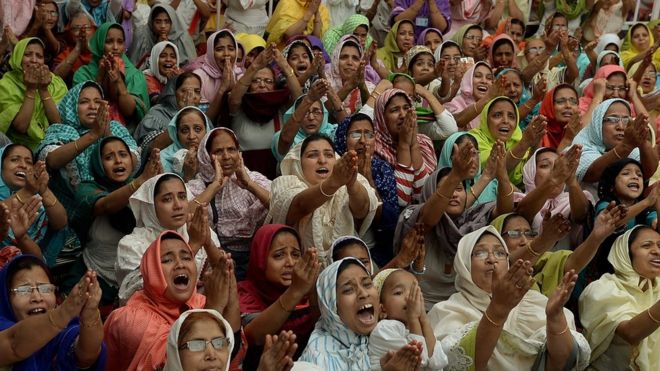Will the government show the same grit and enthusiasm for triple talaq to ban the practice of FGM/C in the Bohra Community?” Lok Sabha MP Shashi Tharoor

Image Courtesy: GettyImages
A new “ground-breaking” national research on female genital mutilation/cutting (FGM/C) directly questions the affidavit recently filed by the Ministry of Women and Child Development in the Supreme Court doubting existence of the practice in India.
The report titled, ‘The Clitoral Hood a Contested Site: Khafd or Female Genital Mutilation/Cutting (FGM/C) in India’ has been released to mark the UN’s ‘International Day (February 6) of Zero Tolerance for FGM’.
“With the dignity, health and well-being of millions of girls at stake, there is no time to waste. Together, we can and must end this harmful practice,” reads a message from the UN Secretary General, Antonio Guterres.
Some of the key findings of the report:
- 75% of all daughters of the study sample were subjected to FGM/C, which means it continues to be practiced on little girls.
- 97% of women who remembered their FGM/C experience from childhood recalled it as painful. While most women said they suffered immediate pain from the procedure only 2 women said they did not have any immediate or long-term impact from FGM/C.
- Despite sex being a taboo topic, approximately 33% of women subjected to FGM/C in the study believe it has negatively impacted their sexual life. Low sex drive, inability to feel sexual pleasure, difficulty trusting sexual partners, and over sensitivity in the clitoral area were some of the problems identified by several women.
- Close to 10% of the women who had undergone the procedure in the current study specifically mentioned urinary problems, recurring UTIs, burning and incontinence. In addition, one of the study participants reported bleeding of the clitoral hood area due to irritation.
- Many respondents in the study reported feeling fear, anxiety, shame, anger, depression, low-self-esteem, and/or betrayal of trust as some of the fallouts that they associated with their FGM/C.
The report was released at a press conference held Monday in Delhi by WeSpeakOut, the largest survivor-led movement to end Female Genital Mutilation/Cutting (FGM/C) amongst Bohras, in collaboration with Nari Samata Manch, a trust for gender equality. WeSpeakOut members were joined by Dr. Shashi Tharoor, Member of Parliament, Lok Sabha, at the press conference.
Basing itself on narratives from survivors, the report flies in the face of the Ministry of Women and Child Development’s “alarming affidavit” to the Supreme Court that stated, “there is no official data which supports the existence of FGM.”
Masooma Ranalvi, founder of WeSpeakOut welcomed the report stating: “Anyone who doubts or denies the existence of FGM/C in India must read this report filled with heart wrenching stories of the many harms from FGM/C. By turning a blind eye and doing nothing about FGM/C, the Government of India is denying women and girls their rights enshrined in the Indian constitution. In keeping with its international human rights commitments under numerous treaty bodies, India must at once pass a law that bans the act of providing FGM/C.”
Addressing the media Tharoor said: “Women’s right to dignity supersedes right to freedom of religion. Law cannot and should not question the idea of divine but law can and must regulate human action that hurts others. Will the government show the same grit and enthusiasm for triple talaq to ban the practice of FGM/C in the Bohra Community?”
Read the full report.
http://wespeakout.org/site/assets/files/1439/fgmc_study_results_jan_2018.pdf
